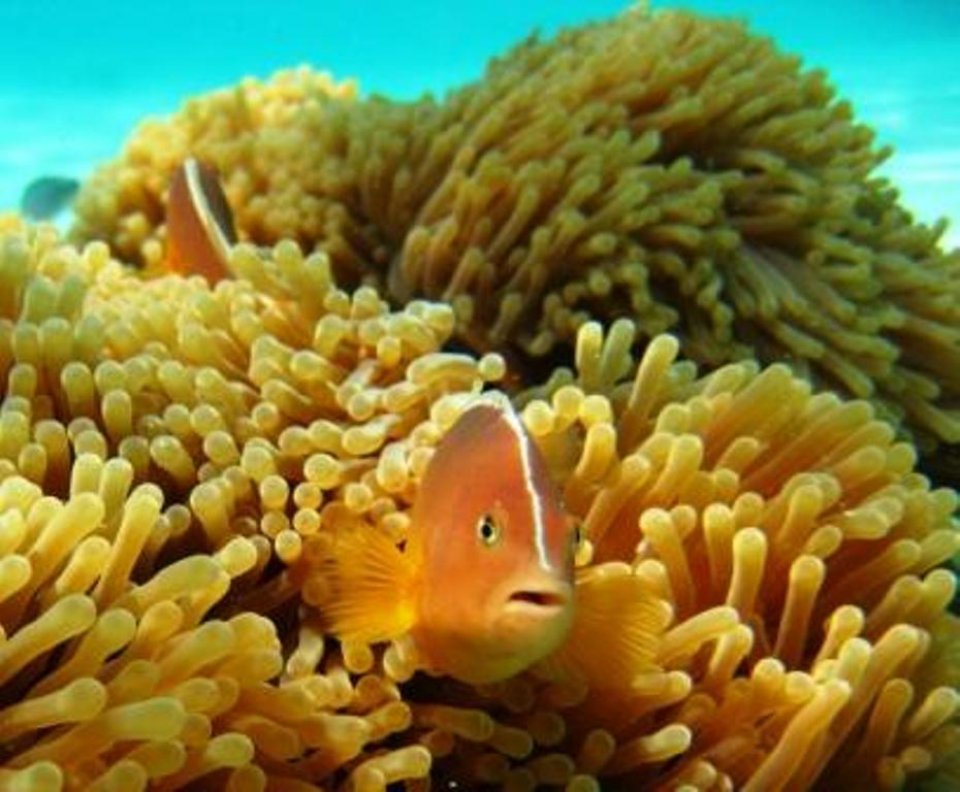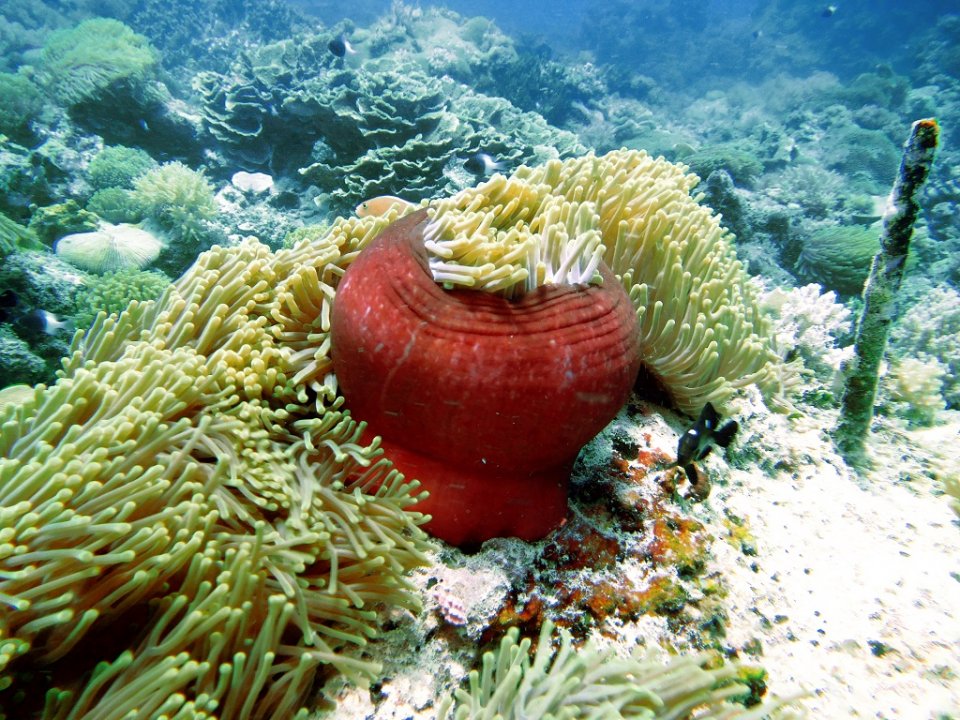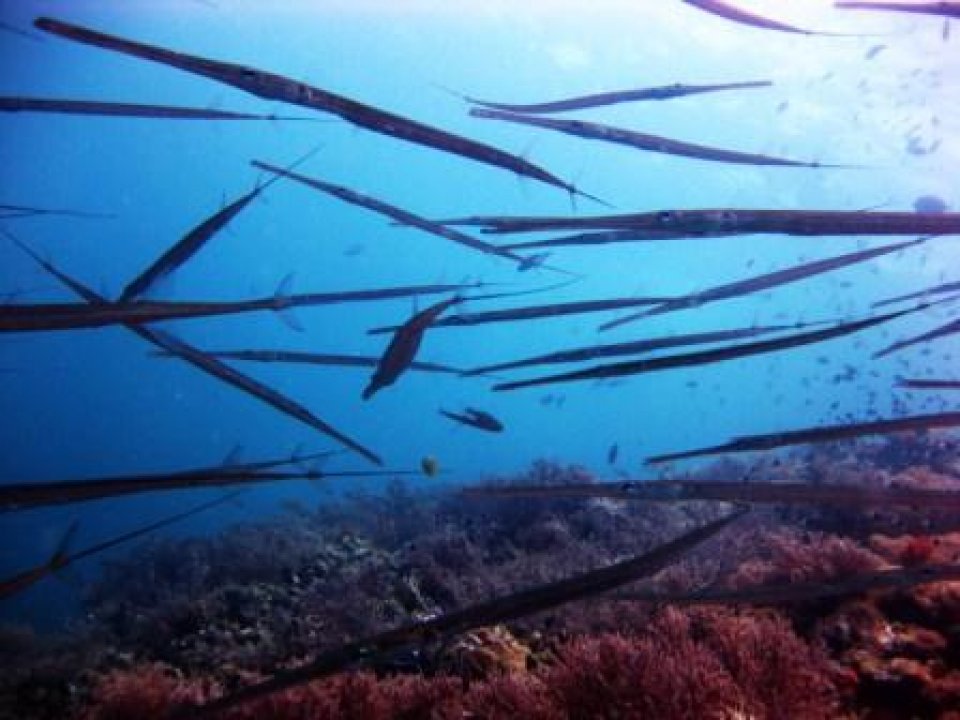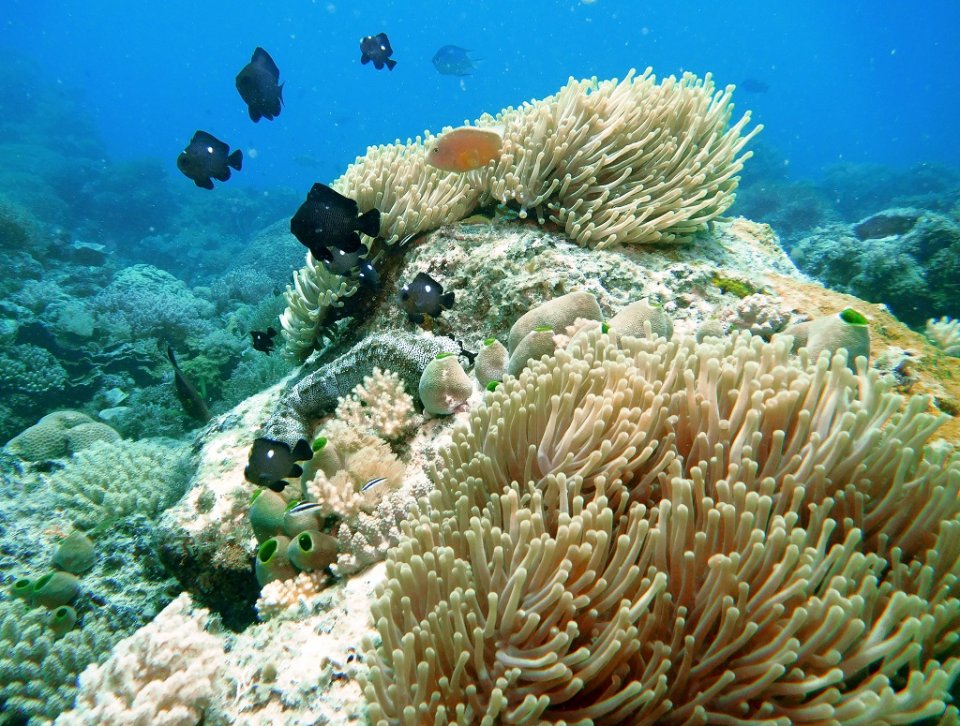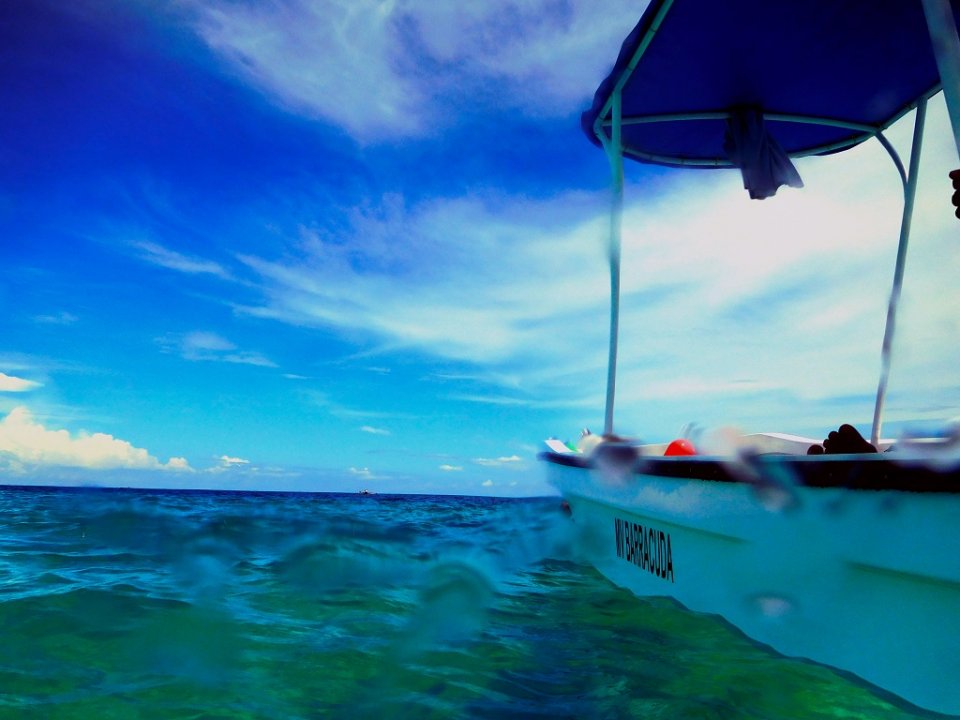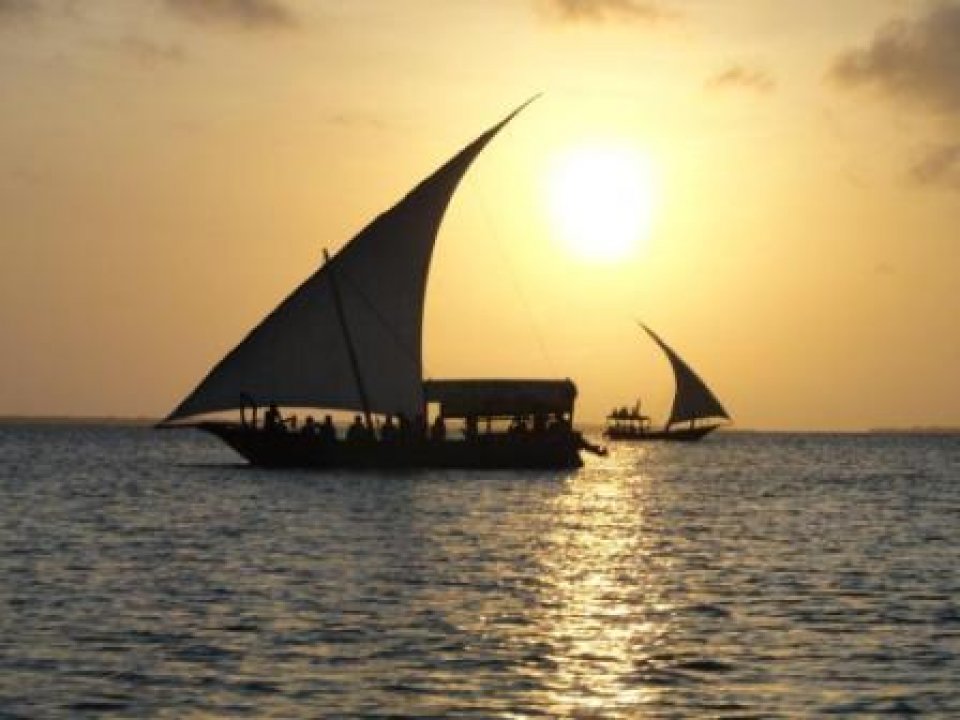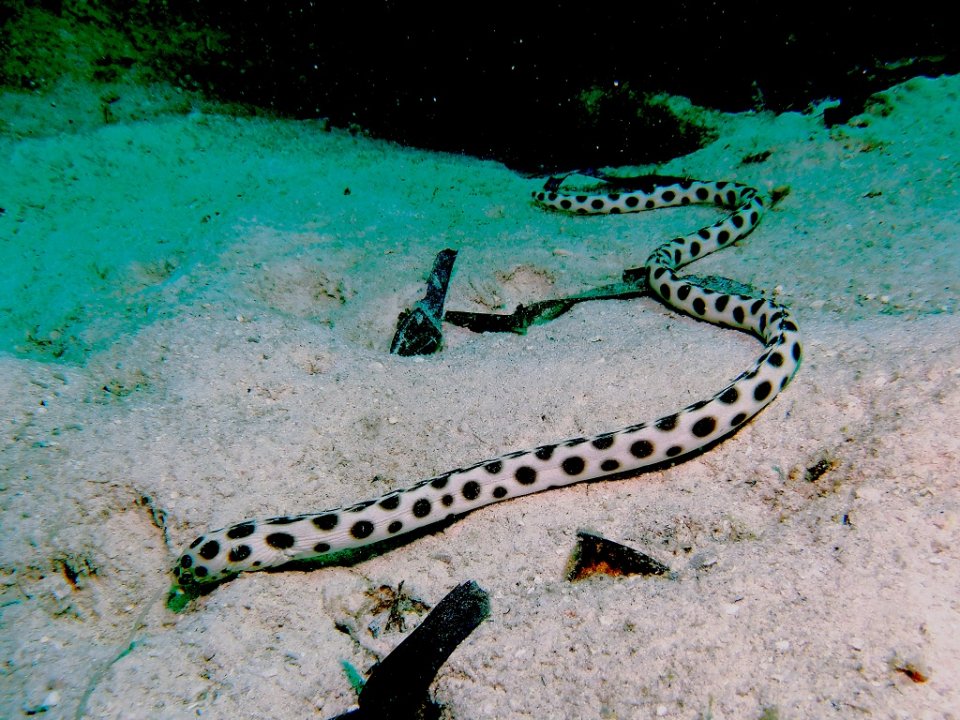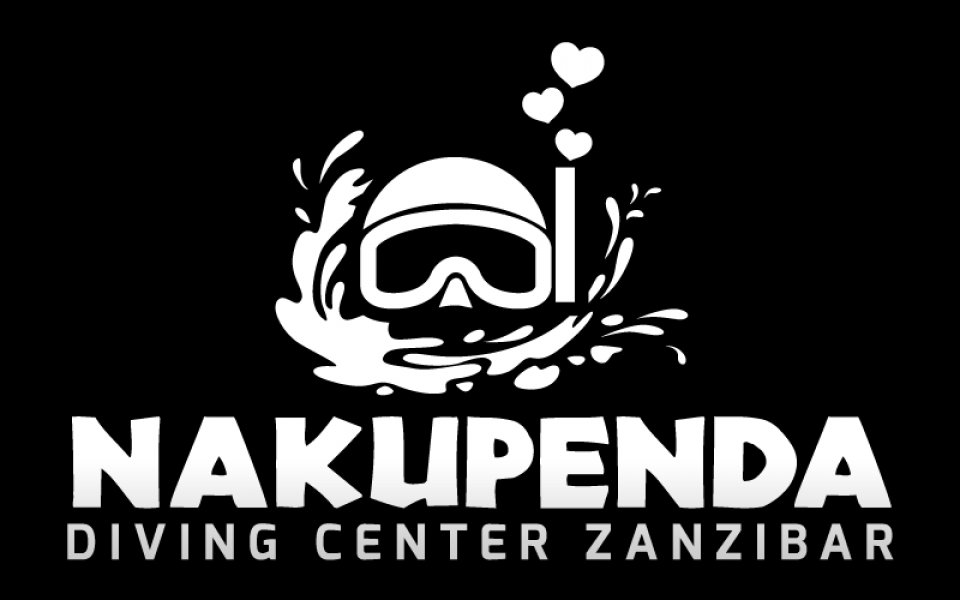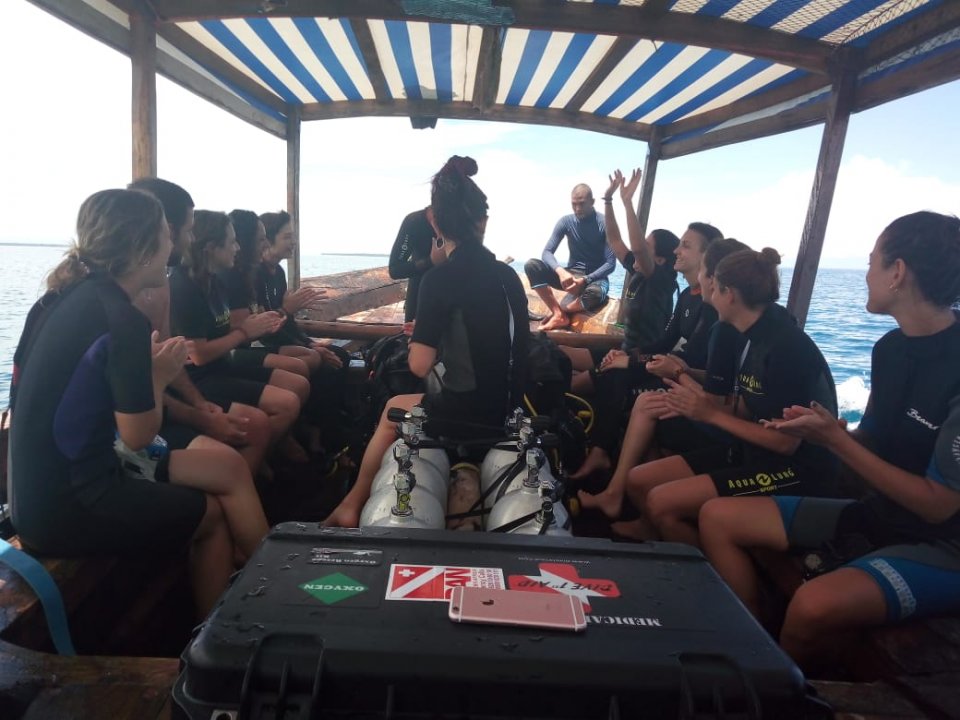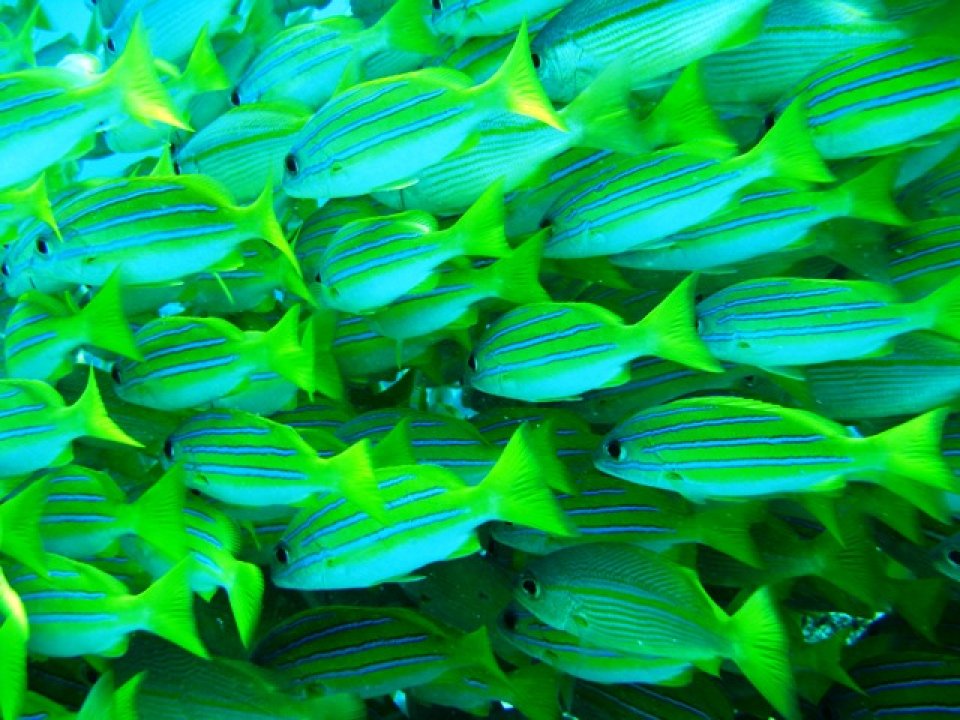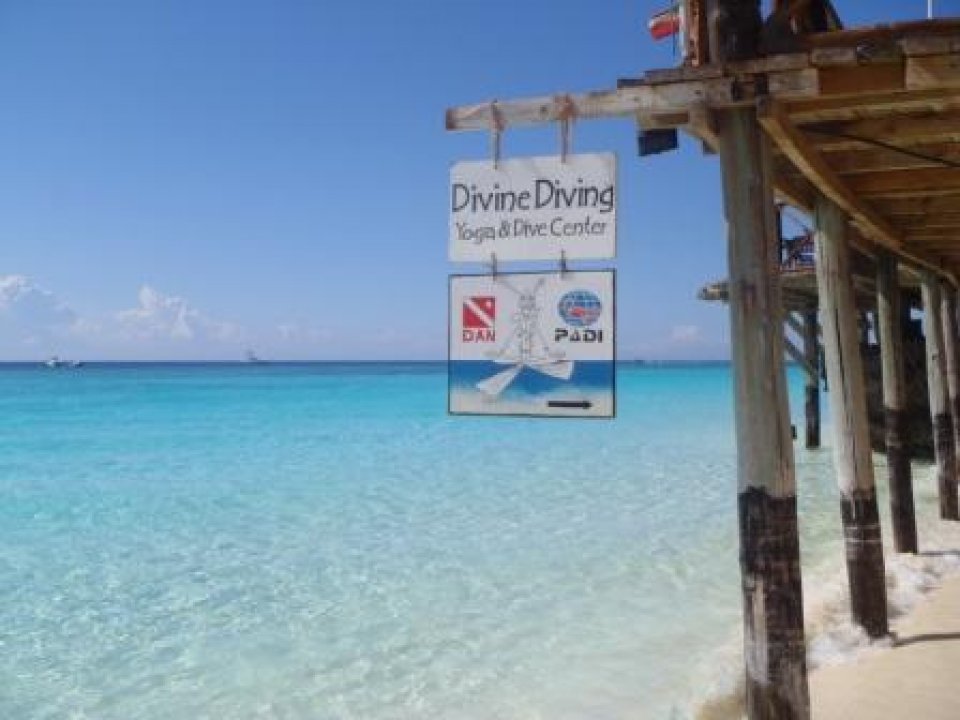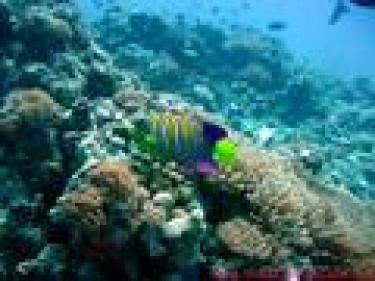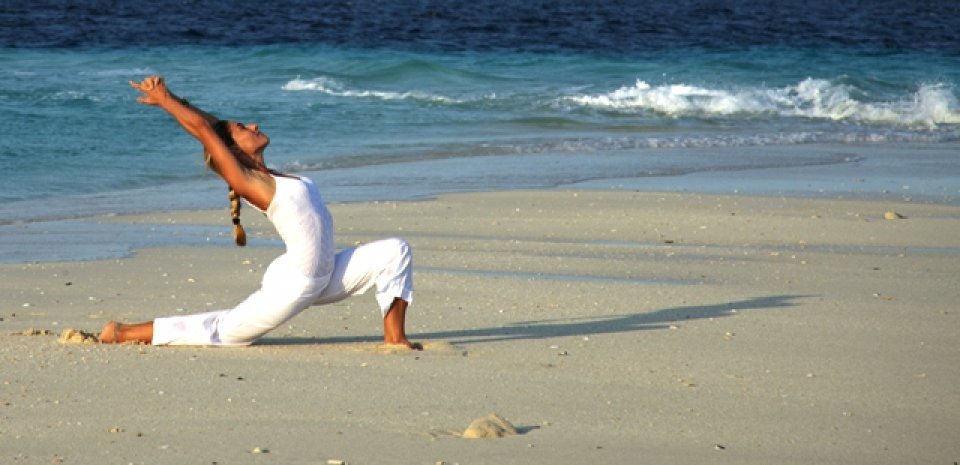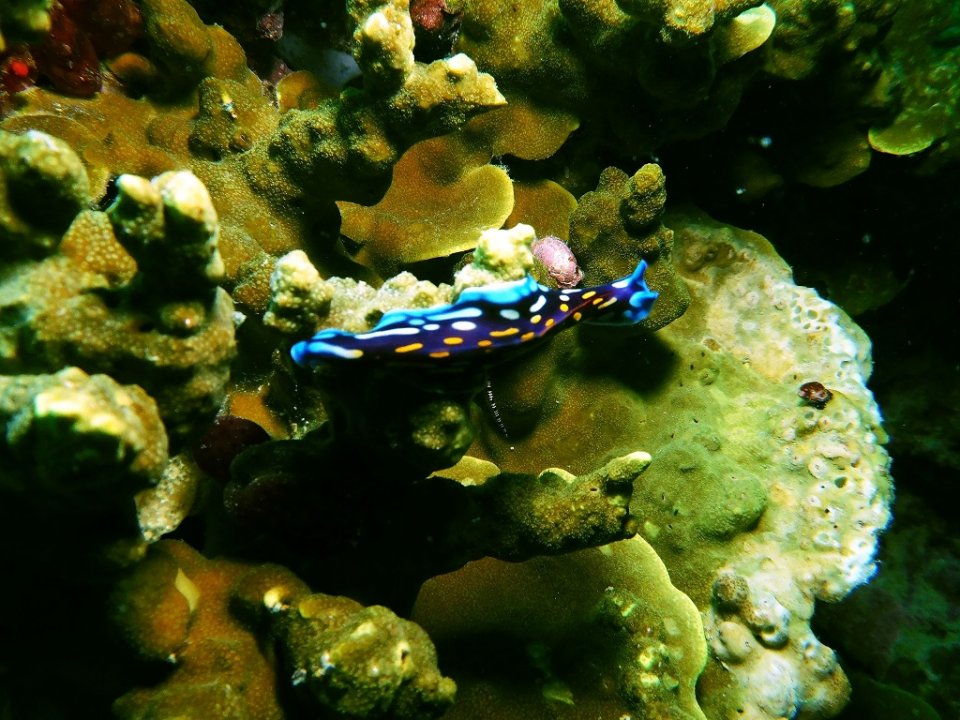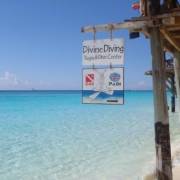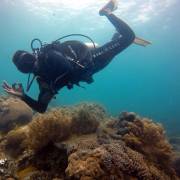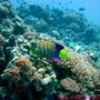Dive in Zanzibar
Diving packages in Zanzibar
-
6 dive packages
This package includes the 3 days dive around Mnemba,Tumbatu and local reefs.The price includes transport to the nearby hotels of Nungwi,snarks,equipment rental and marine park fee290 $ More Information -
4tank dives -2days
it a dive package that is done for 2days around tumbatu,mnemba or haji and kichafi reefs,it includes snarks and equipments included our trip usually starts at 8:00. This price includes the marine pack fee,equipment rental, snarks and transport from the near by hotels of Nungwi200 $ More Information -
2 day diving - 4 Dives
Haji Depth: 10 - 18m A big mountain of plate coral, surrounded by other bommies with soft and hard corals. Lots of schooling fish can be seen at this place, such as yellow snapper. Bottlenose dolphins have been seen many times at this site!!! Or have a closer look at the rocks to find the perfectly camouflaged stonefish and scorpion fish. Hamdus or Leons Wall Depth: 12 - 40m Leons wall is a…175 $ More Information -
3 day diving - 6 Dives
Mbwangawa Depth: 12 - 18m A gentle slope with a great diversity of corals. The 'corner' of the reef is home to some large plate corals - a truly beautiful sight! Mbwangawa is also one of the places with the best possibility for encountering green turtles. On the sand, have a look out for the wonderful guitarfish. Coral Garden Depth: 6 - 12m This dive site is a relaxed cruise through a field of…250 $ More Information -
4 day diving - 8 Dives
Nankivell Depth: 12 - 18m Close to Hunga lies Nankivell reef, also a great place for big shoals of fish! Nankivell harbors a large area of coral with lots of fish variety. The squid family is well represented here, with a big chance of seeing cuttlefish, octopus and squid. When you feel lucky, at this place you can sometimes even find reef sharks! Just make sure to go at the right time, as…320 $ More Information
Diving in Zanzibar
Zanzibar is bathed by the warm currents of the equator. The coral reefs said to be the best of Eastern Africa offer exhilarating scuba diving and snorkeling within a short boat ride from most beaches.The currents are mild, ensuring safe and enjoyable immersions. The calm waters of the shallow and sheltered tidal lagoons are home to an abundance of colorful marine life and are perfect for divers and snorkelers alike. Huge efforts are made to preserve the environment, with the marine parks of Mnemba and Chumbe.
Beginners to advanced divers will find great and appropriate sites for their level. The coral reef structures that surround the main island ensure an abundant marine life. Walls, small caves, lagoons, and coral gardens are on the menu. Wrecks for all levels, including the Deep Penguin and the Royal Navy Lighter are awaiting you around Stown town and Kizimkazi. A lot of drift diving along the walls and edge of the reef, and almost exclusively boat diving, from single tank dive to day trip.
Shallower waters are the playground of tropical fish, there are a huge variety of butterfly fish, leaf fish, pipe fish and a multitude of mantis shrimps, shrimps, lobsters and nudibranches, offering the best opportunities for underwater photography. In deeper waters, lush coral gardens often stretch as far as the eye can see. Fish life outside the reef includes pelagic species like barracuda, kingfish, tuna and wahoo hunting together with large Napoleonic wrasses, graceful manta rays and sharks. You can encounter hammerheads, white and black tip sharks, giant saddleback and strawberry groupers, huge moray eels. Sometimes dolphins cruise the waters to feed on the many reef fish. You'll also find many resident turtles, and varying with the seasons, more spectacular animals: Migrating Humback and Sperm whales can be sighted during the months of September/October. From December to April come and get a chance to observe manta rays and whale sharks. Whale sharks are a common sight on Mafia island in the south east of Zanzibar.
Among the most famous dives sites are those in the north: the big drop offs of Leven bank, 7miles off shore with a visibility exceeding 25m. You'll see pelagic fish cruising in the blue and many species of moray eels hiding in the crevices of the plateau. Mnemba Atoll has several dive sites including wall dives with stunning landscape vistas and reefs populated with Whale sharks, Dolphins, turtles, reef Shark, and dolphins. Mwana wa Mwana and the shallow reefs off Tumbatu island are a must for Macro photos addicts. Haji, Kichafi and Hunga on the east coast are some of the these reef dives that you can enjoy many, many times, offering Napoleon fish and schools of spade fish, which observe you from the distance. Nyange reef, located at a 45 minutes trip from Stone town, has several dive sites to offer, all of them unique. A new species of coral believed to be endemic to Nyange has been identified there. Also not to miss The Penguin and its adjacent wrecks, home to huge numbers of big Bluefin Trevally, barracudas, large stingrays and moray eels.
Nungwi, at the northern tip of the island has plenty of dive operators, usually situated right on the beach. Some centers are scattered along the eastern coast from Matemwe to Paje, and Kizimkazi in the south. Some long established dive operators run the diving around Stone town.The biggest resorts have their own watersports center. All levels are welcome from novice to experienced diver, instruction and guided dives are offered by most of the centers. You'll find the Hyperbaric chamber in Matemwe, on the north east coast.
Diving conditions are influenced by the winds in Zanzibar. Trade winds regulate the seasons in this part of the Indian Ocean, from mid-March to October, the Kusi(southern wind) blows regularly with stronger period during July/August. The Kaskazi (northern wind) starts to blow any time from mid-November until mid-December and continues in to early March. You may encounter strong wind and rough seas during few weeks in January-February, but the bad weather never last long and usually doesn't impede the diving. Very calm periods separate these two monsoons.
The diving season is year round with an average visibility of 25m (70ft). Avoid April-May as it is the rainy season -the visibility then is not at its best and many hotels choose this period of the year to close. High season is June-August and mid-November to early January: many of the up market hotels may increase their prices but smaller establishments keep constant prices throughout the year.
Water temperatures range from 24°C(75°F) during Kusi to 30°C (86°F) during Kaskazi . The topside air temperatures range between 24°C (75°F) to 39°C (102°F) during these same periods. The tides time and amplitude change with the seasons. On the eastern beaches you can walk onto the bottom of the lagoon at low tide! Diving trips and schedules are usually established in function of the tides.
Malaria is widely present in East Africa below 1,800 m (<5,906 ft), and you may want to discuss with your doctor the option of taking a prescription antimalarial drug. Remember though that it can be a contraindication to dive. Zanzibar is dry and windy on the coast most of the year and thus isn't swarmed by mosquitoes. Using chemical free insect repellent and wearing long pants and sleeves seem the best option to prevent bites and protect the reefs!
Zanzibar has a predominantly Muslim population. During the Ramadan many small restaurants and snack bar are closed during the day, as well as some shops and offices. Tourist resorts and hotels are unaffected, but local discos, clubs and musical shows remain closed throughout the whole period. If you arrive during that time,refrain from smoking and eating/drinking in the street, it is considered rude behavior towards the local population. Stay for the end of Ramadan, and enjoy the huge feast and party, the Eid Al Fitr, the most festive time on the isles.
(By Diane Talbotier)

Travel to Zanzibar

Zanzibar also commonly called Unguja by the local population and is the largest island of the Zanzibar archipelago that is also comprised of Pemba, its northern sister and several small islets including Changuu, Tumbatu, Mnemba. It lies in the Indian Ocean, a mere 40km off of Tanzania. Over the centuries traders from Arabia, Asia, and Europe have intermingled with the local Bantu tribes and shaped its history. Centuries of trade in spices, metals and slaves have left their marks on the island but today Zanzibar is known by many as a honeymooning and exceptional diving destination.
Stone Town, the heart of Zanzibar Town, was constructed during the 19th century and remains largely unchanged: labyrinths of alleys, palaces, mosques and old Arab houses will tell you its story. The capital is a typical east african hub, rich in history, busy, and sometimes noisy. It's a lively, vibrant atmosphere (so don't expect calm and quiet). You will find some good diving a few miles off shore: dive boats will take you to the several wrecks close by and to Boribu, an impressive reef where you can spot whale sharks during the season.
The Fumba peninsula, south of Stone Town airport is definitely the most relaxed and friendly corner of the island. A few kilometers off shore you will find Chumbe Island. This tiny coral island is part of a marine park that successfully preserved some of the most beautiful coral gardens ever.The reef crest being between 1-3 meters deep, snorkelers can see what is usually reserved to divers. Although scuba diving within the Chumbe reef sanctuary is permitted only for research and filming activities, it is still possible to enjoy diving on the nearby reefs.
On the far north side of Zanzibar,the village of Nungwi has become the touristic center of the island. The place has always been reputed for its dhow-building industry. However, over the last decade the ramshackle fishing village has become one of Zanzibar's busiest beach areas.
Tumbatu island, only two kilometers from shore keeps its distances. The secretive island isn't open to tourism and its surrounding reef keeps it somewhat isolated from the rest of Zanzibar.
The east coast of Zanzibar has some of the most beautiful powder-white beaches.There is a variety of places to stay and you are minutes away from most of the dive spots on the barrier reef. Dive centers offer regular diving and snorkeling trips around the private Mnemba Atoll, which its small exclusive lodge is rated as one of Tanzania's top destination!
The Michamvi Peninsula and the southeast corner of Zanzibar that stretches south of Chwaka Bay are very similar in character to the east coast . It has the same pristine beaches lined by coconut trees, good diving opportunities and ...plenty of space.The area was once the busiest beach scene of the island but the low budget travelers have moved to the north leaving this part of the coast more quiet. Not as many dive centers in the vicinity but the reef is amazing and you may have some unexpected and unforgettable encounters.
Several airlines offer international flights directly to the island. Zanair, Tropicalair and Coastal offer domestic air charter and scheduled flight services from the main cities in Tanzania .The flight from Dar El Salaam is only 20minutes. If you plan to arrive by sea, hydrofoils and classic ferries ply regularly the 60 km of water that separate the island from the tanzanian capital. Azam Marine fast ferries can be booked online and cross the Zanzibar channel in 2 hours -expect twice the time with a regular ferry. Once in Stone town you may want to use the chauffeur drive services provided by your hotel/resort or tour operator. This is by far the most comfortable and is worth the extra fee (they have aircon and a lot of room for your diving gear). With an international driving license you can rent a car at the airport, most of the roadways has been redone recently but driving there can be tricky: chicken, bicycles and police officers awaiting for a bribe are some of the dangers of the road! Otherwise you will always find a taxi at the "arrivals" door. Officially the rate is regulated but it is usually negotiated -make sure you agreed on the fare before leaving the airport. Also the "Dala-dala's" will take you almost anywhere for very cheap, but they won't drop you on front of your accommodation, however it can be a fun and exotic trip. Most of them depart form the main mabasi (bus)station close to the market.
Long time favored only by the most adventurous travelers, Zanzibar offers today a wide range of accommodations, from basic to semi luxury. Backpackers, self catering cottages(bandas) and guesthouses are numerous around Nungwi and you can find excellent beach bar/restaurants on the beach. Grocery stores are very basic and sometimes have power only few hours during the day but in most places you will always find a cool soft drink! All- inclusive resorts and lodges are a good option when you stay in a remote area, as they offer a lot of amenities and alternative activities to the non divers.
Wander in the narrow streets of The historic Stone town, declared a UNESCO World Heritage Site in 2000. The visit of the vibrant, open-air market (preferably in the morning) will give you a colorful idea of the zanzibari way of life. A tour around the spice plantations is a must: you will learn everything about clove, cinnamon and many other spices. Experience the small dark dungeon-type cells of the old slave Market. In February, don't miss the Sauti Za Busara music Festival, a six-day cultural extravaganza. Mid-July opens the doors of the festival of the Dhow Countries, an international Film Festival. Spend few hours in the Jozani Forest with the nearly extinct Red Colobus Monkeys that live here. These monkeys, native to the Island welcome you in the safety of the Jozani-Chwaka Bay National Park. This unique groundwater forest is also home to other endangered species like the near extinct Zanzibar leopard, and the elusive Ader's duiker.
More than anything the island is a paradise for all water sports: big game fishing (most operators encourage the catch-and-release approach), kite surfing on the desert beaches of Matemwe and Paje, snorkelling on the pristine reef sanctuary of Chumbe island. Dolphins are a common sight around Mnemba Atoll and Kizimkazi, and with some patience you will get to observe them from few meters. At the end of your day, enjoy a sunset cruise on a traditional dhow. With a laid back lifestyle and a great range of dive sites Zanzibar has become a mecca for divers. Despite the ongoing touristic development, it is still a relatively unspoiled paradise.From colorful coral atolls to wall dives, the beauty and the richness of the environment elevate Zanzibar to the status of on of the best diving destinations.
(By Diane Talbotier)
